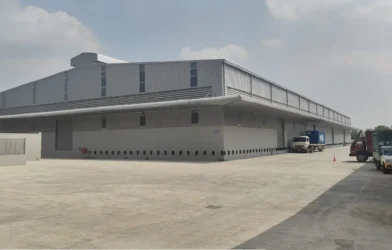Subtotal ₹0.00
Dr. Ajay Kumar Pandey, Advocate, Supreme Court
The RWAs and the residents of group housing societies have largely been having an uneasy relationship. During the Covid pandemic, this relationship became strained due to various diktats of the RWAs, some of which were illegal. In this backdrop, a very pertinent question with regard to the role and responsibilities of RWAs, their relationship with the residents, and their overall utility comes to the fore. A common complaint against the RWAs or the office bearers of the Apartment Owners Associations is about their arbitrary, authoritative and selective and secretive way of working. An equally important issue that arises out of the authiritarian attitude of some RWAs, is how should residents deal with some of the rowdy RWAs.
Legal Remedy to Tackle Rowdy RWAs
Let’s first understand, what RWA is. It’s a voluntary association of member residents, having no statutory powers. Its forcible decisions can be challenged in the court of law. If you feel being intimidated or harassed, (like limiting autonomy, decision-making power and access to certain resources), you can file a case at the nearest police station.
One can also approach a court of law for launching an investigation in the case. So, let’s examine here the powers of the residents vis-a-vis RWAs
1) Remedy of Abatement before the Registrar of Societies is applied in contracts and debts as a means to reduce the sum payable to the RWA if the resident is overcharged or wrongly charged for services. When this remedy is invoked to deal with nuisance by RWA or any of its members, it is for removing the underlying cause.
The complaint can be made before the Registrar of Societies. If needed, amendments to the Memorandum of Association and Rules of the RWA are allowed under sections 12 & 12A of the Societies Registration Act,1860. Additionally, a complaint to this effect can also be filed with the Sub Divisional Magistrate [SDM] of the area.
2) Remedy of Injunction under Section 9 of the Civil Procedure Code, 1908 is an order or decree requiring the RWA to refrain from committing a specific act, either in process or threatened, that is injurious to the resident.
An injunction is granted by a civil court on grounds that the mentioned action causes, or will cause, irreparable damage to the resident. Injunctions are generally preventive, restraining, or prohibitory in nature. It can also be for affirmative action on the part of RWA, in which case it is called a mandatory injunction. For instance, to destroy a wall that encroaches on the property of the resident.
A temporary Injunction may be granted under Order 39 of CPC, 1908. A permanent Injunction may be granted, after hearing both parties, under sections 38-42 of the Specific Relief Act, 1963. For both, a lawsuit can be filed against the President or General Secretary of the RWA, or as per any specific rules of the state government under Societies Registration Act, 1860, read with Code of Civil Procedure,1908.
3) Police Complaints can be filed, in extreme cases, if the Governing Body has become financially corrupt and is engaged in extortion, bribery or theft of funds. An FIR under section 154 of Code of Criminal Procedure,1973 can be filed before the SHO of the local police station
Criminal charges can be instituted under sections 383, 171B and 378 of the IPC, based on evidence of transfer of funds by the Treasurer, General Secretary, or President of the RWA, and an independent audit report of the books of accounts and bank account maintained in a scheduled bank. Based on these reports, the RWA can be dissolved under sections 13 & 14 of the Societies Registration Act, of 1860.
4) Social Media has also proved to be a boon for residents. In numerous cases, it was found that online ranting and raging against RWAs has become the norm and even proved faster and more efficient in arriving at solutions and settlements.
Powers of a RWA
The Real Estate Act (Regulation and Development) Act of 2016 mandates that an RWA should be formed within three months of “a majority of allottees having booked their flat”. Any 10 members can come together to form an RWA and if more are interested in joining it, elections have to be held.
If they collect maintenance fees, then they have to compulsorily get themselves registered. Ideally, builders should ensure the formation of the RWA and enable a smooth transition of management from them to the residents, but that exists only in books.
The transition from builder-management to resident-management is typically difficult and hard-won by the residents, even involving court battles. But once it handed over to RWA, the battle starts between RWA and its residents right from the election of the RWA.
The source of potential conflict ranges from barring certain communities/nationalities as tenants to moral policing about women visitors to male homes as happened in Gurgaon recently, to imposing vegetarianism. The worst hit are tenants who sometimes find that they have no problems with their own landlords but are at loggerheads with the RWA members.
If we look around, no matter which city you live in, there is plenty of anecdotal evidence to conclude that the Residents-RWA relationship is a match made in hell. As I write, in my building there’s an issue of the RWA forcing contribution of Solar installation, without doing any job, continuing with extra maintenance work charges for over two years and separate lift being used for pets.
RWAs can be notoriously arbitrary in their rules, disallowing in some cases even pets into the society’s garden. But there are ways of recourse for residents who wish to protest against the RWA’s rules
Conclusion
It would be wrong, however, to assume that RWAs are the villains of the urban residential landscape. They have their uses as an intermediary body between residents and the local authorities. They also help forge community bonds by organising common events on important days, which as individual residents we would not have the time to do. Also, residents can sometimes indeed cause neighbourly nuisance value by being too noisy or obtrusive or dirty, all of which needs censure.
To conclude, it can be said, that residents will do better by learning the new norms of community living and RWA can learn to rule with responsibility, transparency and democratically. The healthy relationship between two, will lead to happy community living.












